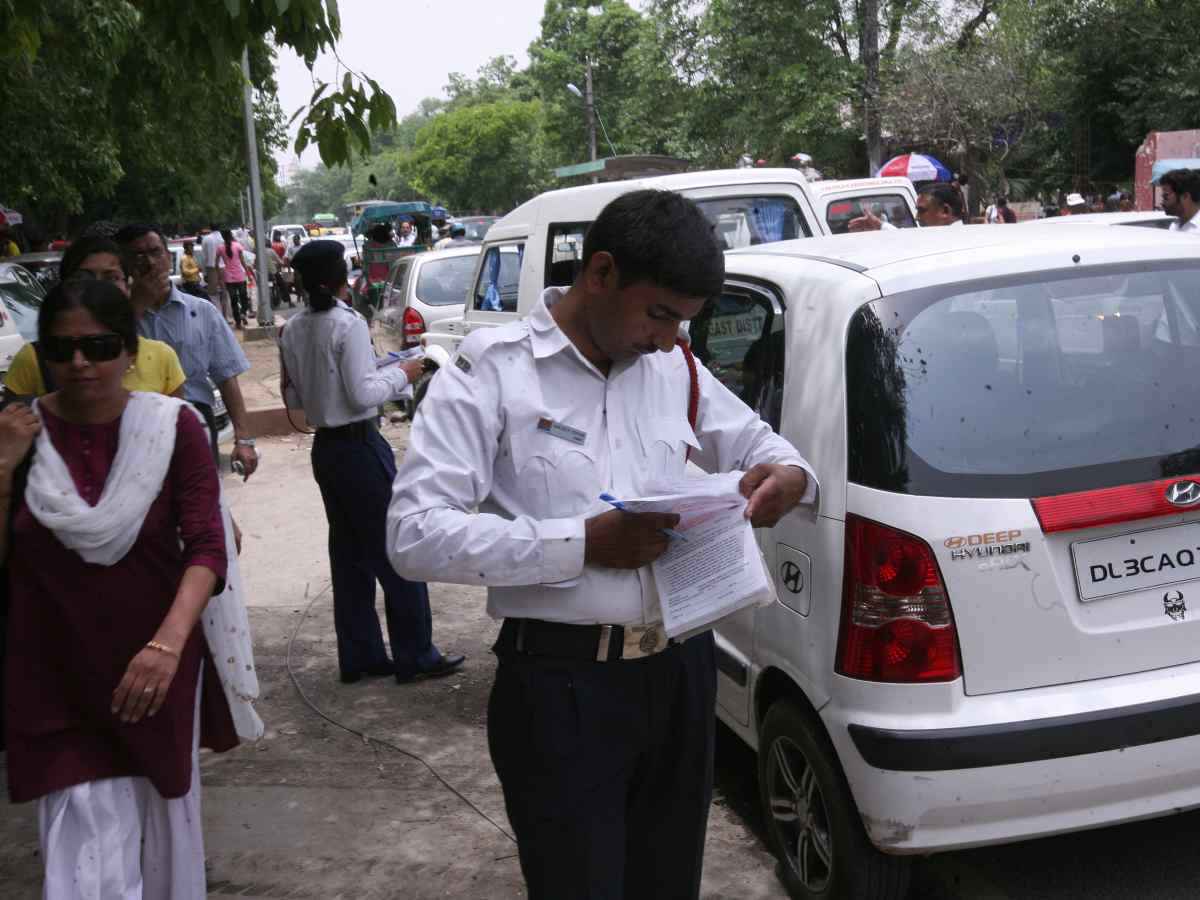
Delhi: Authorities’ crackdown on air pollution has hit violators hard in the city, with over Rs 260 crore in fines imposed on more than 2.6 lakh vehicles lacking Pollution Under Control Certificates (PUCC) in just 50 days.
The crackdown was implemented under the Graded Response Action Plan (GRAP).
Between October 16 and December 6, the Environment Department issued 260,258 challans across all four stages of GRAP.
Breaking down the time period and stages, a total of 12,756 challans were imposed in Stage 1 from October 16 to October 22, 111,235 in Stage 2 between October 22 and November 14, 13,938 in Stage 3 from November 15 to November 17, and 114,089 in Stage 4 from November 18 to December 5.
Also read: Delhi: Why fishermen, farmers are likely to vote for a cleaner Yamuna
Meanwhile, 8,240 challans were issued in Stage 2 after Stage 4 restrictions were lifted on Thursday, with Stage 2 restrictions remaining in effect, according to official data. A fine of Rs 10,000 is imposed on motorists for not having a valid pollution under control (PUC) certificate.
Delhi’s air quality reached alarming levels on November 17 when the AQI touched 450, entering the severe-plus category for the first time this year.
In response, the Commission for Air Quality Management in the National Capital Region (CAQM) escalated the situation to Stage IV restrictions, the strictest level of action under GRAP.
Stage IV restrictions came into force on the morning of November 18, when AQI levels reached a hazardous 494 – the city’s second-worst air quality in six years.
The spike triggered a complete ban on non-essential trucks entering the city, except for those carrying essential goods or using clean fuel, including LNG, CNG, BS-VI diesel, or electric vehicles. Non-essential light commercial vehicles from outside Delhi were also banned, with exemptions for EVs and CNG/BS-VI diesel vehicles.
The implementation of Stage IV saw the highest number of fines issued for traffic violations, with a total of 114,089 challans between November 18 and December 5.
Meanwhile, from December 6 to 7, as Stage 4 restrictions were lifted and Stage 2 measures were put in place, 8,240 challans were issued.
In total, 11,427 overaged vehicles were impounded under various stages of GRAP. The highest number of fines was recorded under Stage 2, with 5,346 overaged vehicles impounded between October 22 and November 14.
This was followed by 3,679 vehicles impounded during Stage 4 restrictions from November 18 to December 5, according to official data.
Also read: Delhi: Bomb threat shocks 40 schools: USD 30,000 ransom demanded
The restrictions also targeted the flow of non-destined trucks into Delhi. During the enforcement period, 104,768 trucks were diverted through the Eastern and Western Peripheral Roads.
However, after Stage 4 restrictions were lifted on December 6, the number of non-destined trucks diverted to Delhi dropped to zero.
First implemented in 2017, the GRAP is a set of anti-air pollution measures followed in the capital and its vicinity according to the severity of the situation.
It classifies the air quality in the Delhi-NCR under four different stages: Stage 1 – ‘poor’ (AQI 201-300), Stage 2 – ‘very poor’ (AQI 301-400), Stage 3 – ‘severe’ (AQI 401-450) and Stage 4 – ‘severe plus’ (AQI above 450).
A total of 730 vehicles were challaned for carrying construction & demolition waste uncovered across all stages, with 150 in Stage 1, 280 in Stage 2, 15 in Stage 3, 278 in Stage 4, and seven in Stage 2 after Stage 4 restrictions were lifted and Stage 2 restrictions remained in effect.
Meanwhile, 681 traffic congestion points were decongested, according to official data.
After a month of struggling with toxic air, Delhi’s air began to heal with the help of wind, and on December 1, it was recorded in the ‘poor’ category.
As the days passed, the air quality improved to ‘moderate’ category. However, it took a turn again, and this Sunday, the air quality deteriorated, recording a ‘very poor’ category with an AQI of 302.
On Monday, the AQI improved again and returned to the ‘moderate’ category, according to CPCB data.
Delhi hosted what organisers describe as the world’s first player auction in golf, launching ‘72…
An elderly woman recalls how her six-year-old granddaughter lay bleeding after a speeding car hit…
Municipal Corporation of Delhi plans a unified policy enabling RWAs to adopt and maintain parks…
A 17-year-old boy allegedly died by suicide after jumping before a moving train at Uttam…
Delhi High Court grants bail to 26-year-old Thar driver accused of mowing down two in…
Two Rohini men arrested for fatally stabbing one person and injuring another during a robbery…